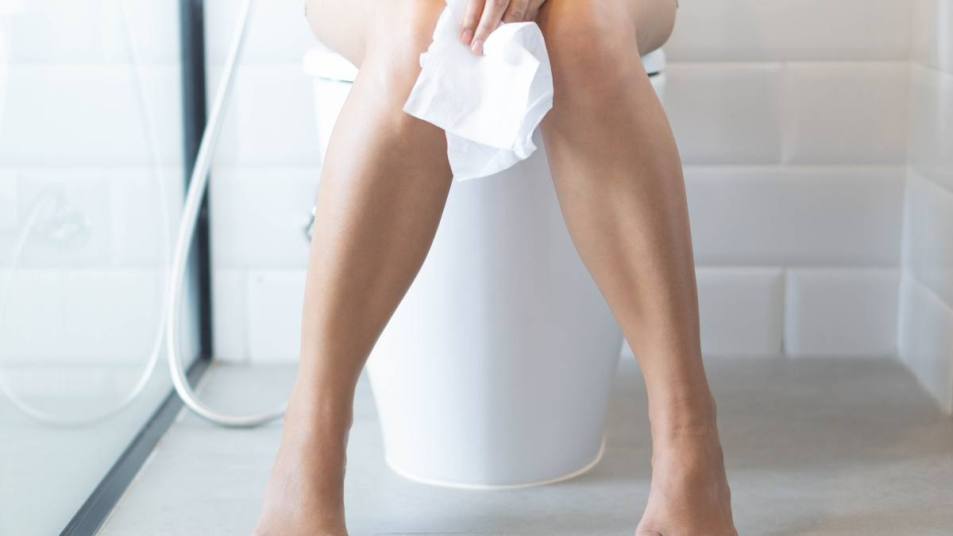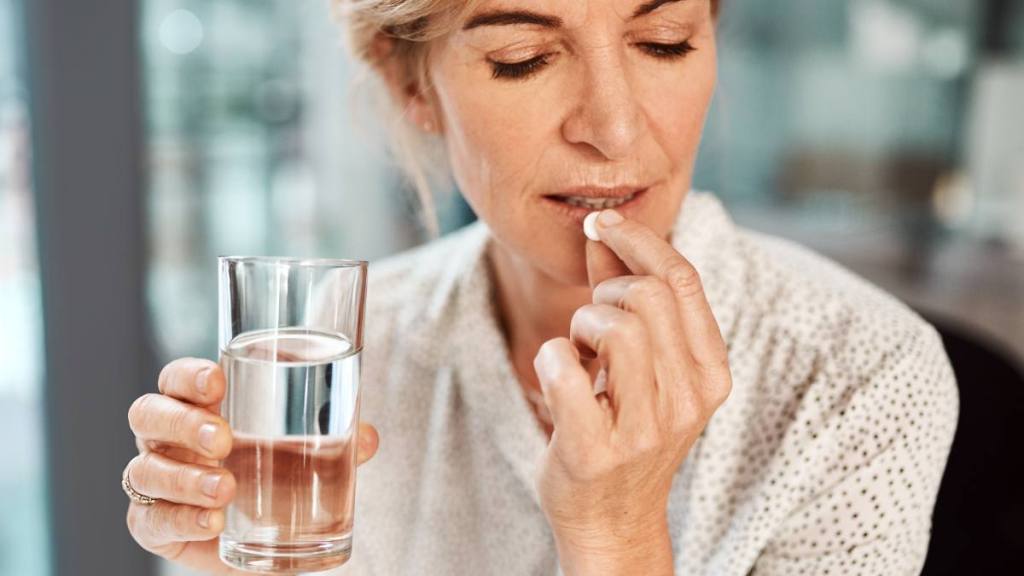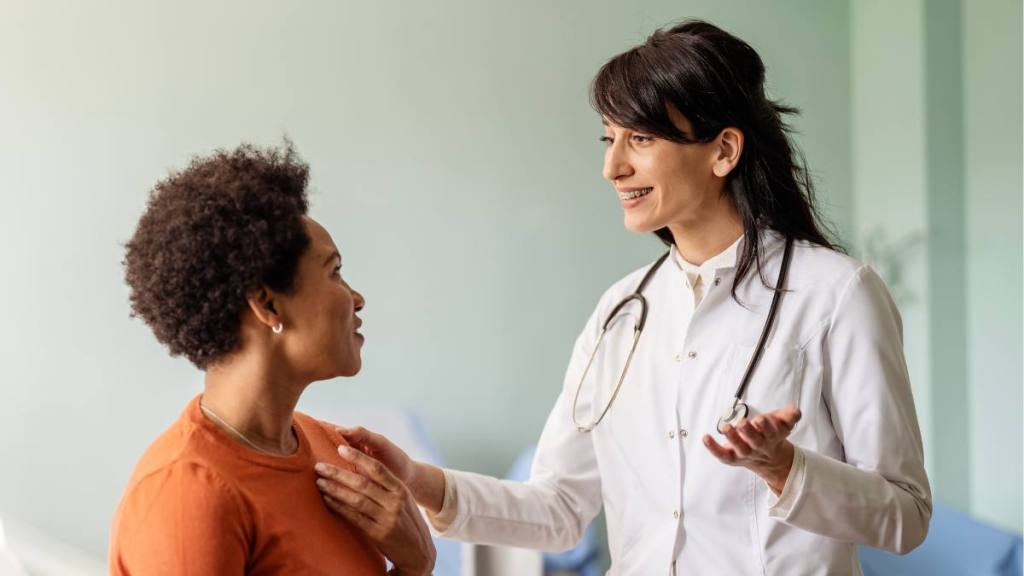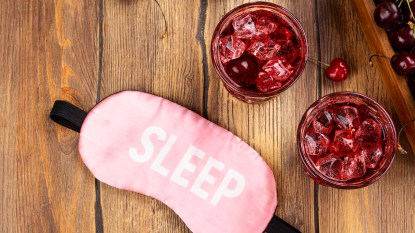MDs Explain the Causes — and Cures — for Period Diarrhea
You're not alone: 3 in 4 women experience GI problems before or during their period

We expect the cramps, bloating, mood swings, breast tenderness and breakouts associated with our monthly period. But for many women, especially during perimenopause, period diarrhea is also a problem. Indeed, research shows that up to 73% of perimenopausal women experienced at least one gastrointestinal symptom before or during their period, and abdominal pain and diarrhea were the most common. But what causes period diarrhea? And should you worry about it? We polled ob/gyns and other top doctors to find the answers. Keep reading for all the must-have info.
What causes period diarrhea?
“Menstrual diarrhea occurs right before or during your period due to an increase in the hormone-like chemical called prostaglandin,” explains Amy Wetter, MD, an ob/gyn at Pediatrix Medical Group. These chemicals, which are produced during menstruation, cause the uterus to expel its lining and contract, leading to cramping, abdominal pain and diarrhea, explains Barbara DePree, MD, a certified menopause practitioner and founder of MiddlesexMD.com, an educational resource on sexual health for women in perimenopause and beyond.
What’s more, research shows that prostaglandins can also reduce absorption and release electrolytes in your small intestine. This means your intestines don’t have enough time to absorb food, which can cause GI symptoms such as pain and diarrhea.
In addition to prostaglandins, other factors and conditions may affect bowel movements during that time of the month. We look at some of them below:
Anxiety and stress
The same study above also found that depression, anxiety and fatigue may make you more prone to experiencing GI symptoms during your period. When you’re menstruating, it’s normal to feel more anxious and stressed. This is because your body experiences a fluctuation in estrogen and progesterone, two important hormones that help regulate your menstrual cycle and prepare your body for reproduction.
“In some people, stress could accelerate or alter the movement of contents in the intestine, which can lead to a change in stool consistency,” explains Andrea Shin, MD, a gastroenterologist with UCLA Health in Los Angeles.
Related: Doctors Break the Silence on Stress and Diarrhea: What They Want You to Know
Diet

Many women experience an increase in appetite before they get their period and eat more foods high in sugar, salt, and fat, such as chocolates, pastries and snacks, and sugar, artificial sweeteners and sugar alcohols can trigger diarrhea.
Hormone flux
Your body experiences an increase in progesterone before menstruation. This can affect your gastrointestinal (GI) tract and cause diarrhea.
If you have chronic bowel problems or inflammatory bowel disease (IBD), such as Crohn’s disease or ulcerative colitis, your symptoms may get worse during your period, says ob/gyn Laura Corio, MD, author of The Change Before the Change. “It’s thought this is due to prostaglandins, which can make the cramping and diarrhea worse.”
Diarrhea is also common during menopause
In menopause, the body experiences a decrease in estrogen and progesterone, which can cause mood swings, hot flashes and fatigue — to name just a few symptoms.
Estrogen and progesterone help your muscles to work smoothly when the food is passed through your digestive tract. However, research shows that the decrease in hormones can cause constipation and diarrhea.
Related: Study: A Cold Plunge Eases Hot Flashes, Mood Swings + More Menopause Symptoms — How to Get the Perks
How to treat period diarrhea

Your doctor may recommend ibuprofen to help relieve cramping and discomfort. This drug also acts as a prostaglandin inhibitor, so it may help reduce period-related GI symptoms like diarrhea. Dr. Corio’s advice? “Consider taking 600 mg of ibuprofen twice a day, starting a few days before you expect your period until the first day of your period. This will limit the amount of prostaglandins circulating, easing your symptoms.”
Hormonal birth control, such as the IUD, pill, ring, or patch can be an option if you have PMS. They can also reduce cramps and period flow.
If you have diarrhea, your doctor may recommend:
- Eating potatoes, bananas, bread, and rice to help make your stools firmer
- Avoiding eating greasy and fried foods as they may worsen diarrhea
- Eating small meals so you don’t feel bloated
- Drinking water and herbal teas to replace the lost fluids
Related: Is Yogurt Good for Constipation? Yes — And So Are These 9 Other Foods
When should you see a doctor

There are some warning signs that may require medical attention, as they can indicate that you have a more serious condition. “Diarrhea associated with blood or mucus in the stool, and fever lasting more than 2 days or not controlled by over-the-counter medications, may indicate an underlying health condition,” says Dr. Wetter. “These should not be ignored and require immediate medical care.”
Other conditions that cause period diarrhea
Often, period diarrhea is just that. but sometimes, it can be caused by gynecological conditions. Read on for more details.
Endometriosis
In endometriosis, tissue similar to your uterine lining grows outside your uterus. It occurs in more than 11% of females ages 15 to 44 in the United States. Experts don’t know why endometriosis causes bowel changes, but these may happen as a result of the lesions located near the bowels. If your diarrhea is accompanied by the symptomsbelow, it may also be a good idea to schedule a visit with your ob/gyn:
- Pelvic pain that worsens during your period
- Period pain that interferes with your routine
- Diarrhea
- Pain during or after sexual intercourse
Adenomyosis
It happens when the tissue lining of your uterus grows inside your uterine wall, causing an enlarged uterus, diarrhea, and pain during sexual intercourse. If you suspect you may be suffering, see your ob/gyn.
Madhu Bagaria, MD, FACOG, endometriosis excision specialist at Pelvic Rehabilitation Medicine, states that “The first step in diagnosing any of these conditions is listening to the patient’s story and exploring other associated symptoms like period pain, cramps, bloating, pain during intercourse, trouble urinating and putting the pieces of the puzzles together.”
This content is not a substitute for professional medical advice or diagnosis. Always consult your physician before pursuing any treatment plan.
For more on period health, click through the links below!
Ob/Gyns: Don’t Ever Use a Tampon With Damaged Packaging — Here’s Why
Research: Castor Oil Packs Proven to Relieve Constipation, Menstrual Cramps & Joint Pain













